Knock at the Cabin
 for violence and language.
for violence and language.
Reviewed by: Jim O'Neill
CONTRIBUTOR
| Moral Rating: | Very Offensive |
| Moviemaking Quality: |
|
| Primary Audience: | Adults |
| Genre: | Apocalyptic Horror Mystery Psychological-Thriller |
| Length: | 1 hr. 50 min. |
| Year of Release: | 2023 |
| USA Release: |
February 3, 2023 (wide release) DVD: May 9, 2023 |
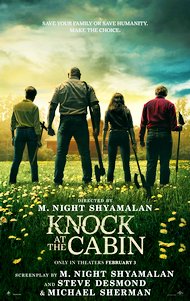

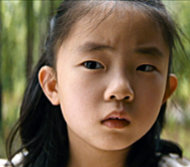
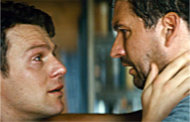
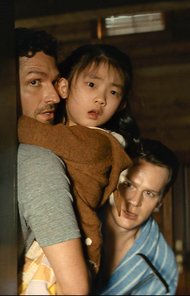
Gay couple (men) adopted and are raising a 7-year-old girl
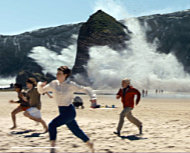
Apocalyptic tsunami
Being asked to sacrifice a family member to save humanity
Troubling visions
Kidnapping
Flu virus that is killing many people

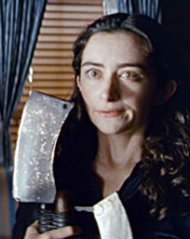

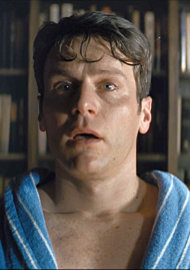
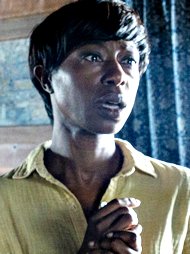
| Featuring |
|---|
|
Dave Bautista … Leonard Rupert Grint … Redmond Jonathan Groff … Andrew Ben Aldridge … Eric Nikki Amuka-Bird … Adriene Abby Quinn … Sabrina Kristen Cui … Wen See all » |
| Director |
|
M. Night Shyamalan |
| Producer |
|
Universal Pictures Blinding Edge Pictures See all » |
| Distributor |
“Save your family or save humanity. Make the choice.”
M. Night Shyamalan’s “Knock at the Cabin,” adapted from Paul Tremblay’s horror novel “Cabin At the End of the World,” opens with 8 year old Wen alone in a yard catching grasshoppers which she seals in a lidded glass jar. It’s a familiar image reminiscent of the cricket being sequestered in an urn in Bertolucci’s “The Last Emperor” or canaries being re-caged in a pet shop in Hitchcock’s “The Birds.” The cupped hand that guides and confines the creature combines delicacy and portent in a way that soothes our emotions while it disarms our instincts.
It’s hardly a leap to realize that Wen too, despite her seemingly open and carefree surroundings, will herself soon be captured and encased. She is on vacation in the woods on a lake in New Hampshire with two men who have adopted her as their daughter. She refers to them as Daddy Andrew, and Daddy Eric.
Isolation, and its attendant sense of dread, sets the tone for all that ensues. There are no major highways that lead to and from the cabin. There are no neighbors living nearby. There is no cell phone service.
Such an environment seems less than ideal for an only child who, precocious as she might be, is a mere 8 years old. On the other hand, this is a horror movie, albeit with existential and moralistic overtones, so Shayamalan recreates Tremblay’s clichéd template, doing little to shift gears away from creaky cabins and rattling tree branches toward a psychological environment that puts a modernized and citified family in clear and present danger, one that requires wits, courage and luck to wriggle out of. Tremblay’s book gets bogged down by its use of multiple narrators with their shifting points of view, narcissistic murmurings of past psychic dramas, and the ever-present conundrum of sorting out exactly where the danger lies. Have the vacationers entered a post-apocalyptic world? Has their cabin been invaded by a quartet of Manson-like psychopaths? Is the encounter just a delusional fantasy with the puzzle being who exactly is the deluded party?
Tremblay’s book keeps the reader guessing, and Shayamalan makes the mistake of being too faithful to the author’s obtuse form of storytelling. In the end, however, the director veers and drastically changes the novelist’s jolting climax. By doing so he not only deadens the story’s impact, but unravels it by bending a knee to wokeism and its spawn, nihilism. Shayamalan would like us to accept the premise that saving a soul is secondary to saving a planet. He softens his story’s materialist philosophy by imbuing it with religious motifs, but those overtones nod more to Aztec cultism than to Christianity or humanism.
A horror movie, or any suspense drama worth its salt, needs to tell us the who, what and why of the danger. It needs to be real. “Knock” breeds anxiety, and it often repulses, but it does not scare. If something is undefinable or, in this case, free-floating, it never quite takes hold. We cannot be truly frightened by something we’re not sure even exists. Being holed up in a cabin in the woods, even for a summer vacation, to someone like myself who rarely ventures outside the borders of one city island, is scary enough. Shyamalan had a head start right there. Confinement and isolation, things we’ve grown warily used to during the past two years, are themes that a film could tap into and make us contemplate what such states do to our psyches and our souls.
Some films have done that, and they still have an impact today. John Huston’s “Key Largo,” Alfred Hitchcock’s “Rear Window,” and even Sam Raimi’s “Evil Dead” horror movies summon up dread, even after repeated viewings. Shyamalan’s film gets so bogged down with woke agendas and tiresome grievances that it becomes more a bother than an alarm.
Daddy Eric (Jonathan Groff) and Daddy Andrew (Ben Aldridge) have spoken to Wen about the dangers of talking to strangers, yet despite their caution, she is easily taken in by a smooth talking stranger named Leonard (Dave Bautista) who appears in the yard in front of the cabin, seemingly out of nowhere, and begins to interact with her. By speaking with a bounty of tenderness, assurance and insight he reveals himself to be a master of the off-guard snare, a sinister showman in the mode of Robert Mitchum in “The Night of the Hunter.”
Three more characters, accomplices of Leonard, show up and though they appear on foot it is evident that they represent a perverse modernist version of the four horsemen of the apocalypse heralding the end-time to a fallen world. Sabrina (Nikki Amuka-Bird), Ardiane (Abby Quinn), and Redmond (Rupert Grint) arrive carrying unusual weapons, part garden tool, part medieval lance, and entirely threatening. Leonard’s niceties quickly break down as the group takes Wen and her two hapless fathers into custody after the family refuses his knock on the door and his entreaties to enter the cabin. The intruders invade the home and tie Andrew and Eric to chairs. Obstreperous Andrew argues vehemently but unconvincingly with his captors while reserved Eric is bludgeoned suffering a concussion, an injury somehow opens his eyes to lights and visions, and even to the crazy-talk of the invaders.
Although things go very dark very quickly, Leonard and his team, weapons in hand, speak in phrases that seem familiar to the point of almost being calming.
“It’s not about you. It’s about everyone.”
“We need your help to save the world.”
And my favorite: “You were chosen because the love in your family is so pure.”
Such entreaties are hardly threatening. After all, aren’t those pitches similar to what we hear almost daily on the news, and in spades at a recent World Economic Forum?
Leonard is convinced that the world is about to end, and maybe it is. Television footage in the background (the cabin’s only connection to the outside world) reveals that earthquakes, tidal waves and errant plane crashes are indeed taking place. It’s too bad they didn’t include some riot footage, some jewelry store smash and grabs, and some Chicago weekend gunfire exchanges to round out the impending doom. That might have made me nod and say, yes, indeed, we have reached our end of our days. Leonard’s solution for saving humanity from its fate is to insist that Andrew, Eric and Wen make a sacrifice of one of themselves in order to save every other person on Earth, and the Earth itself.
“Your family must willingly sacrifice one of you three in order to stop the apocalypse.”
And Leonard’s version of the apocalypse is what exactly? The more he tries to explain, the murkier his reasoning gets. And the more he tries to put it all together, the more his companions come apart. As the movie sinks into mania, barbarism, and the usual rolling around on the ground, struggling for weapons banalities, the actors give it their best. Yet the harder they try to evoke an internal contradiction or a burgeoning madness or even a Stockholm syndrome style fear, Shyamalan goes for the gore and cuts them down. Several of the killings don’t come across so much as atrocities as they do snide asides.
When the global apocalypse trumpet blares, no one has a say. Or a point.
The Bible gives us some indication of what to expect from an apocalypse. We will not receive the news from a television screen. Luke describes these things succinctly in Chapter 17 of his gospel. He talks of Noah’s time and Lot’s time and ends by saying:
“Why would it be any different on the day the Son of Man comes?”
The film gets bogged down in its environmental egoism and its animistic view of nature, one that attributes the ability for rage and revenge to inanimate matter. Do I think the Earth itself is capable of reacting in animated ways? Yes. The natural world speaks with a voice and with a personality, one that tends more and more to tenderness than to vengeance. It has great reverence for the force that created it. The planet’s seas allowed that force to walk on top of its waters. Its heavens lowered its eyes, wept and shuddered when that force died on a cross. It sent forth a star when that force was born.
Q & A
THE FORCE really exists! But it is different than the fictional one of “Star Wars.”
The relationship between Eric and Andrew is explored superficially by the director. He seems to be supping with a long spoon while directing his two lead actors to impenetrable performances that border on the repressed. The assumption that a viewer unquestionably accepts this modern family unit, a flaw in the novel as well, is a lazy and fatuous one, and it puts a distance between the characters and the audience. In doing so, it further stifles the suspense. The possibility that alternative parenting may have unexpected, perhaps horror-inducing, effects is never explored, or even alluded to. Like those unfortunate grasshoppers, it’s never let out of the jar.
Q & A
GAY—What’s wrong with being Gay? Answer —Homosexual behavior versus the Bible: Are people born Gay? Does homosexuality harm anyone? Is it anyone’s business? Are homosexual and heterosexual relationships equally valid?
What about Gays needs to change? Answer —It may not be what you think.
What does the Bible say about same sex marriages? Answer
Read stories about those who have struggled with homosexuality
This past year a number of films have brought an agenda of alternative lifestyle acceptance to the forefront asking us to look at the phenomenon not so much with open eyes as with rose-colored glasses. The Hollywood studios have offered us “Bro,” “Spoiler Alert,” and “The Whale,” and each one has done poorly at the box office. During the same period there have been some independent directors who, although they most likely subscribe to a sexual liberation ethos, do not shy away from its consequences. Terence Davies’ “Benediction,” Sebastian Meise’s “Great Freedom,” and Bruce LaBruce’s “Saint-Narcisse” refuse to ignore what can happen when tried and true family units are forsaken for untested alternative arrangements. I do not recommend those films to a Christian audience because they too often border on the obscene, but I cannot deny their honesty, their even-handedness, and their respect for an audience.
We have come to expect that Shyamalan will save his biggest punch for the end. He gets the spellbinding finale right once in awhile as in “The Sixth Sense” and “The Village,” but his Hail Mary passes often miss their mark as in “Lady in the Water,” “Split,” and “Old.” He may have spared us Tremblay’s gasp-inducing book ending, but his own twist is too flowery to have the impact of real tragedy, even if the flower is of a most venomous variety.
- Violence: Very Heavy
- Wokeism: Very Heavy
- Vulgar/Crude language: Very Heavy— • F-words (20+) • d*ck (1) • S-words (4) • “a**” (1) • “Cr*p” (1) • “B*tch” (1) • “B*stard” (1)
- Profane language: Heavy— • “Oh J*sus” (1) • “G*d-d*mn” (2) • “G*d” (5) • “H*ll” (1)
- Occult: Moderately Heavy
- Sex: Minor
- Drugs/Alcohol: Minor
- Nudity: None
Learn about DISCERNMENT—wisdom in making personal entertainment decisions
 Every time you buy a movie ticket or buy or rent a video you are in effect casting a vote telling Hollywood, “I’ll pay for that. That’s what I want.” Read our article
Every time you buy a movie ticket or buy or rent a video you are in effect casting a vote telling Hollywood, “I’ll pay for that. That’s what I want.” Read our article
See list of Relevant Issues—questions-and-answers.


PLEASE share your observations and insights to be posted here.
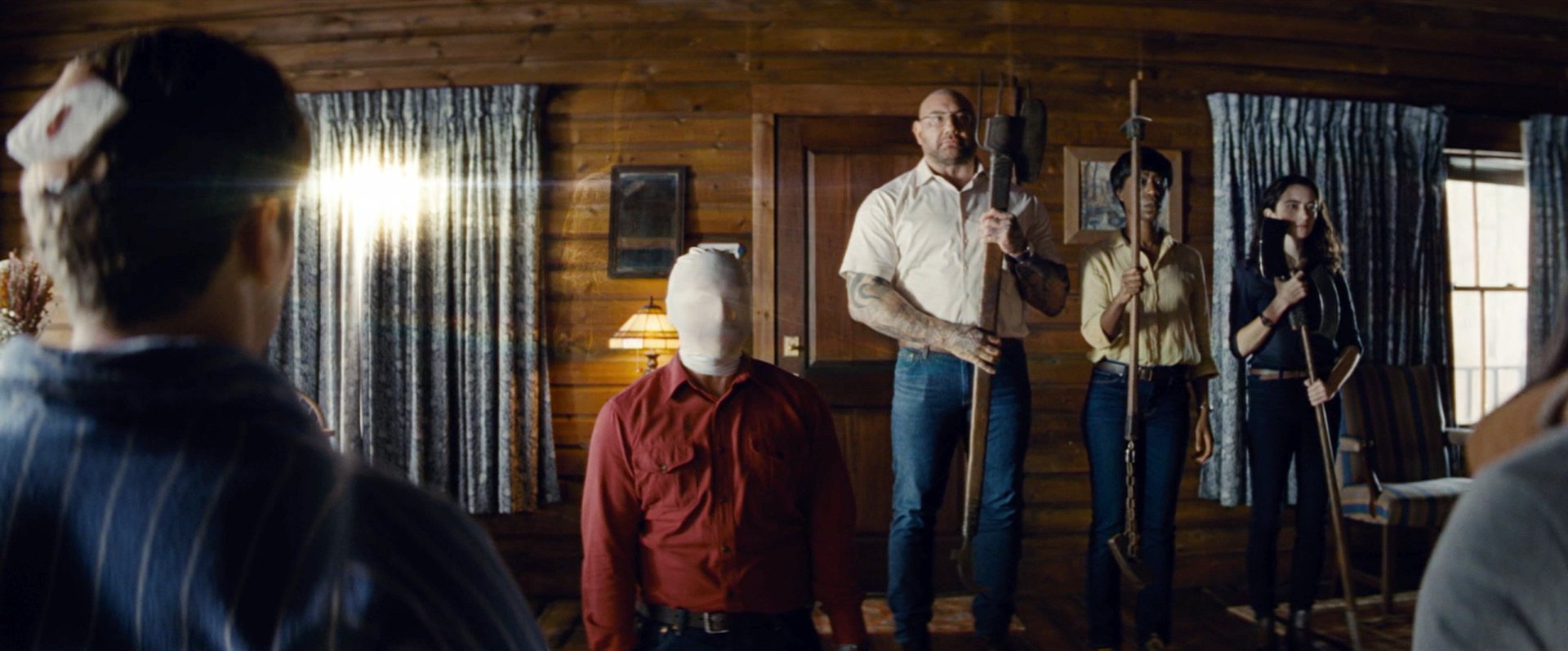
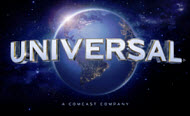
Another weird thing about this movie was “if love and purity were found in the daddies love’ then it’s an evil God who brought the quartet there. For God showed His Love for the world in sacrificing His only son, yet Satan is death to all without hope.
I was disappointed with the shallowness of my once favorite directors. Good review and God bless.
My Ratings: Moral rating: Extremely Offensive / Moviemaking quality: 2